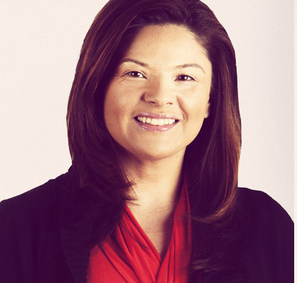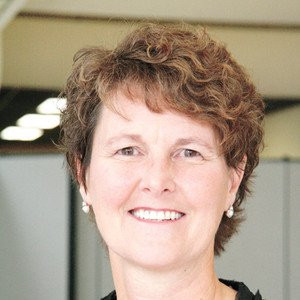Chafee’s Budget: Education
Thursday, January 16, 2014
One of the Governor's major focal points during his administration has been public education, and his proposed Fiscal Year 2015 budget is no different.
The budget fully funds the fourth year of school aid formula and categorical programs with $38 million more; freezes tuition for the second year in a row at public colleges and universities, including an investment by the Governor of $10 million to ensure there are no increases; and recommends capital investments -- by way of a $125 bond referendum -- in URI's engineering program to attract and retain talent.
In FY14, total school aid amounted to $778 million; with the proposed increase in the Governor's budget, the aid amount would be over $816 for FY15.
GET THE LATEST BREAKING NEWS HERE -- SIGN UP FOR GOLOCAL FREE DAILY EBLAST"Education has always been the great equalizer," said Governor Chafee during his budget address, citing President Lyndon B. Johnson's "Great Society" speech when he quoted, "Poverty must not be a bar to learning, and learning must offer an escape from poverty."
"Each year I've made public education a priority, and that continues tonight," said Chafee. The proposed FY2015 budget would mean $8,966 per student for the core instructional amount and $3,586 for "student success factor" to provide additional funding to support student needs beyond the core services with the ultimate goal of closing student achievement gaps.
In the FY15 budget, education represents 27.6% of state spending. Only Health and Human Services is higher at over 40%
Tim Duffy with the RI Association of School Committees said that the Governor's commitment to education "remains consistent" as Chafee continues to fund the education formula with the additional $38 million for local school districts.
Duffy gave the budget proposal a "B+", and said the Governor's legacy was that he "held the line against teacher binding arbitration and stayed faithful to funding the [education funding] formula."
Frank Flynn with the Rhode Island Federation of Teachers and Health Professionals similarly was pleased with the Governor' $38 million to fund the K-12 funding formula which Flynn said is "critical to many of our districts."
However, Flynn added, "One area which of disappointment was that there wasn't an increase in funding for the developmentally disabled community. Last year's budget restored ten million of the twenty four million which was cut in the previous year's budget and I was hopeful additional money would be restored to support programs for this most vulnerable population."
Related Slideshow: RI Experts on the Biggest Issues Facing Public Education
On Friday November 22, the Hassenfeld Institute for Public Leadership at Bryant University, the Latino Policy Institute of Roger Williams University, the Rhode Island Association of School Committees, the Providence Student Union, and RI-CAN: Rhode Island Campaign for Achievement Now will host Rhode Island leaders in the public and nonprofit sectors for a symposium on "the civil rights issue of the 21st century, adequacy and equity and the State of Education in Rhode Island."
Weighing in on the the "three biggest factors" facing education in the state today are symposium participatnts Gary Sasse, Founding Director of the Hassenfeld Institute for Leadership; Christine Lopes Metcalfe, Executive Director of RI-CAN; Anna Cano-Morales, Chairwoman of the Board of Trustees, Central Falls Public Schools and Director, Latino Policy Institute at Roger Williams University; Tim Duffy, Executive Director, RI Association of School Committees; and Deborah Cylke, Superintendent of Pawtucket Public Schools.
Related Articles
- Does Rhode Island Have a Clear Strategy for Higher Education?
- RI District by District Breakdown on Education Costs
- NEW: RI ACLU Files New Motion Against Board of Education
- Don Roach: My Education Crusade - An Interview with Deborah Gist
- RI Experts on the Biggest Challenges Facing Public Education
- NEW: Rhode Island ACLU Blasts Board of Education NECAP Vote
- Don Roach: My Education Crusade Begins Today
- Rhode Island’s Continuing Education Programs Gear Up For Fall
- NEW: Rhode Island Gets $670K For Workforce Training + Education
- Education Expert Michael Thompson Speaks At RI’s Lincoln School
- Tom Finneran: The Death of Common Sense in American Education
- PODCAST: Education Experts Raise Questions About CCRI Spending
- Education Experts Raise Questions About CCRI Spending
- Lisa Blais: Education Is Rhode Island’s Political Football
- PODCAST: RI Experts on Biggest Challenges Facing Public Education
- Arthur Schaper: RI Education: End the Pillage, Restore The Village
- How To Secure Financial Aid and Scholarships For Your College Education
- NEW: ACLU Files Lawsuit Against Rhode Island Board of Education
- Julia Steiny: Public Admits Being ‘Clueless’ About Education
- Chafee’s Budget: Education
- Leaders’ Top 3 Education Issues in Rhode Island
- NEW: Blue Cross Blue Shield RI Launches Healthcare Education Campaign
- Degree By Design: The Accessible Approach to a College Education
- NEW: RI ACLU Announces Third Lawsuit Against RI Education Board













